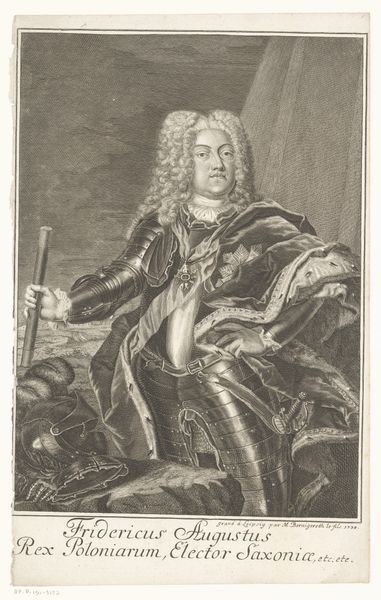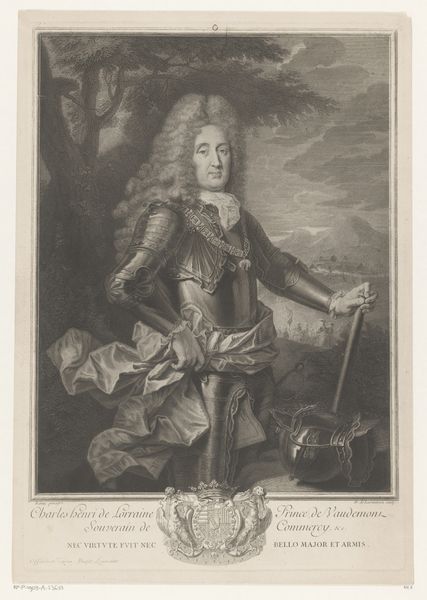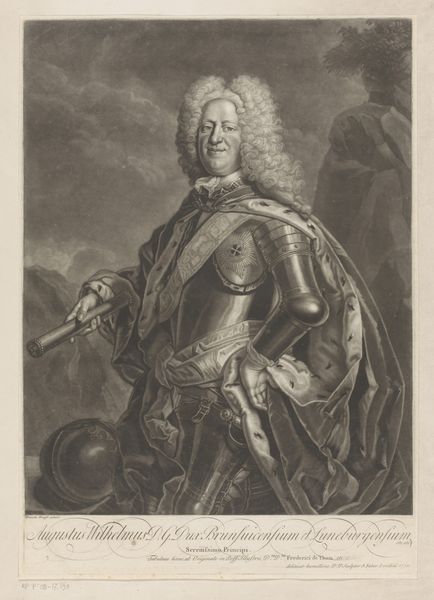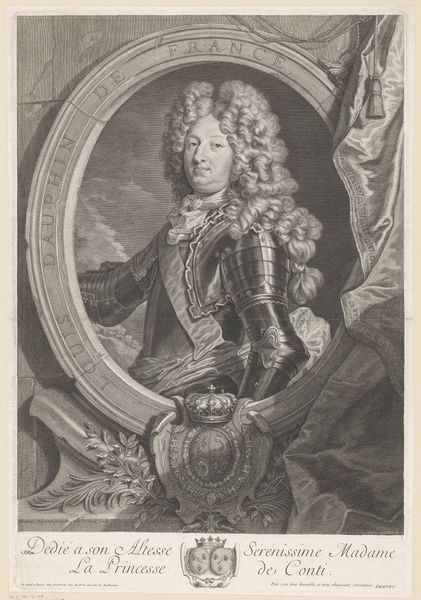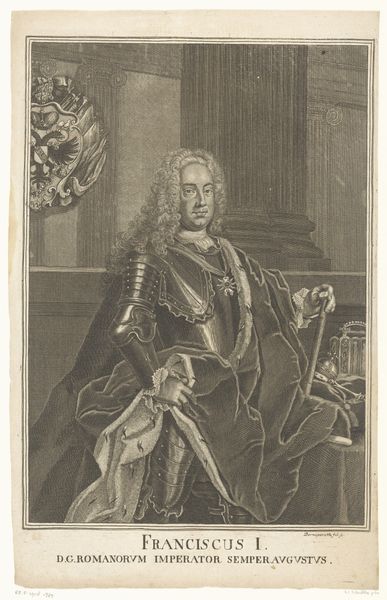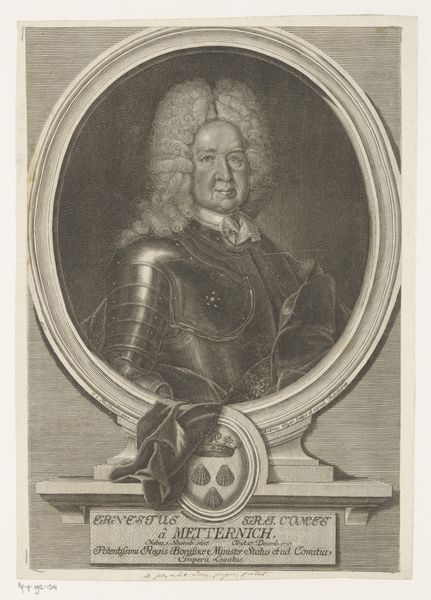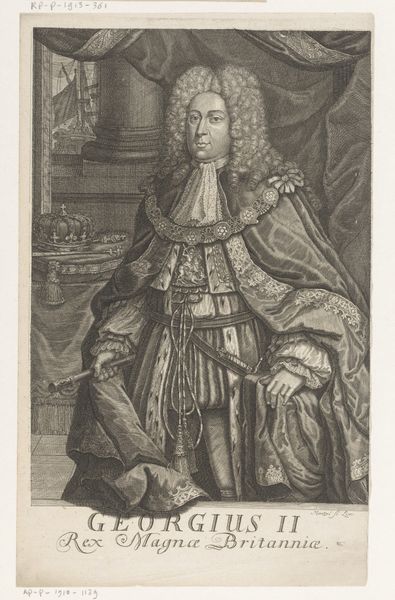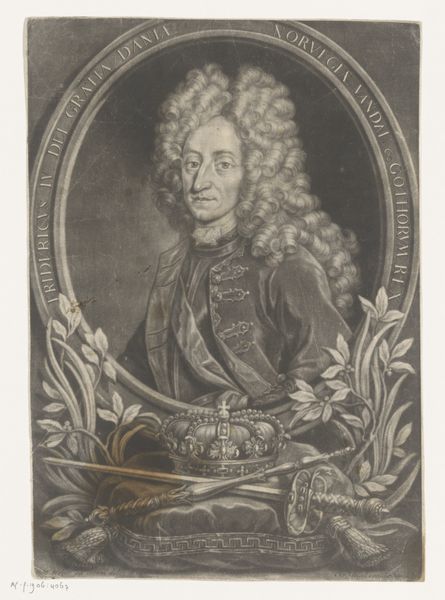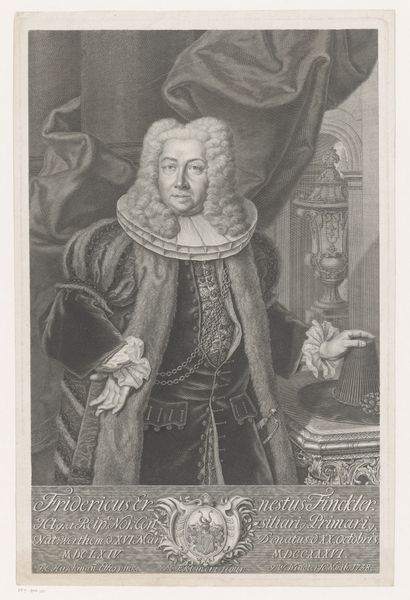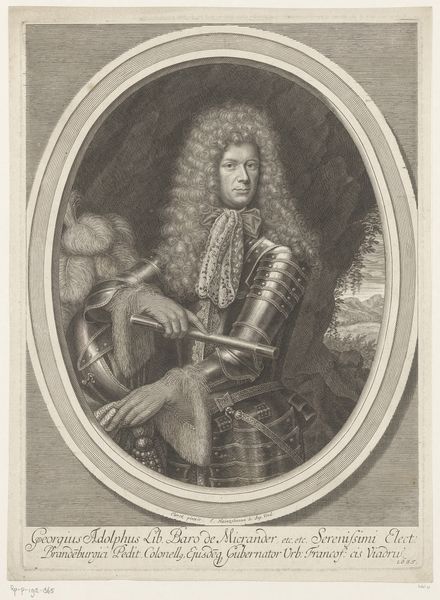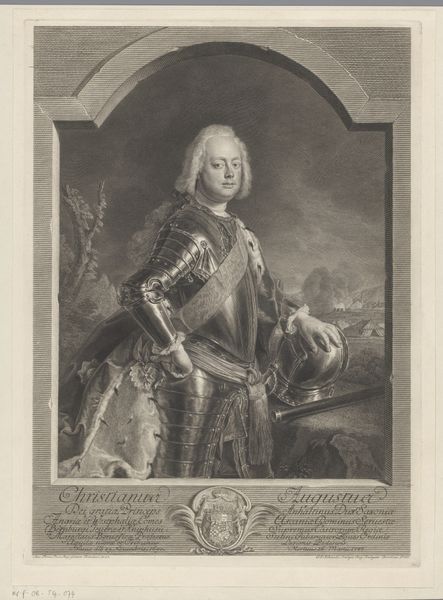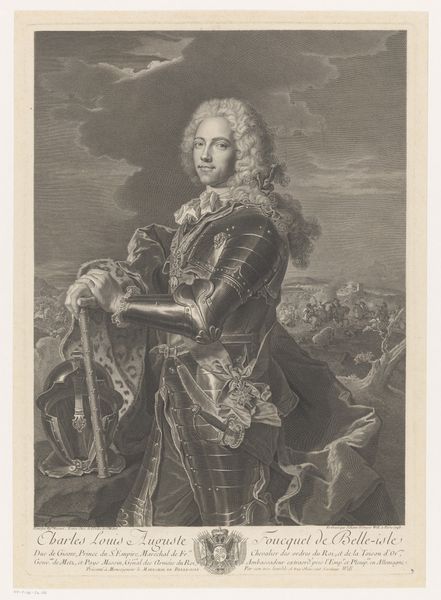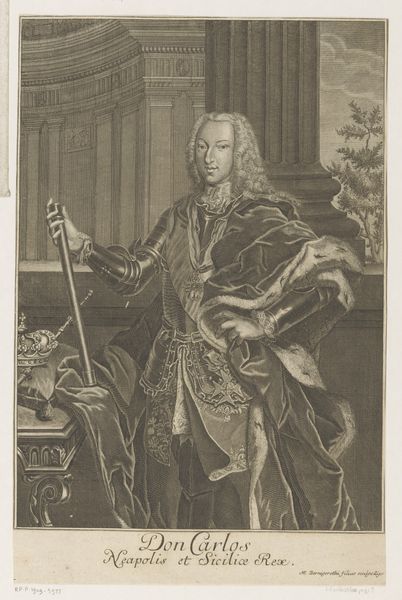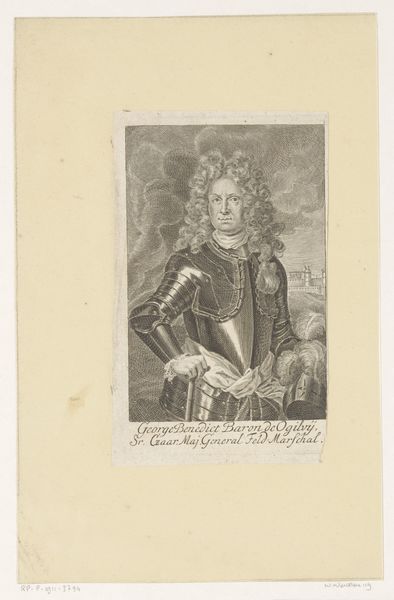
engraving
#
portrait
#
baroque
#
old engraving style
#
history-painting
#
engraving
Dimensions: height 325 mm, width 204 mm
Copyright: Rijks Museum: Open Domain
Editor: This engraving by Johann Georg Mentzel, titled "Portret van Augustus II de Sterke," created sometime between 1687 and 1743, depicts a powerful, regal figure in armor. The level of detail achieved through the engraving process is quite striking. What stands out to you in this portrait? Curator: The visual language here is heavily steeped in the performance of power, wouldn’t you agree? This isn’t just a portrait; it's a carefully constructed narrative. Look at the inclusion of armor, not necessarily for battle, but as a symbol of strength and authority. We need to consider what it meant to portray oneself in this manner during this period. How does this image play into the prevailing notions of masculinity and rulership? Editor: That’s an interesting perspective. It seems almost staged, designed to project a very specific image. The battle scene in the background reinforces that, doesn't it? Curator: Exactly! It is staged. The Baroque period was about spectacle, about constructing an image, influencing perception. Who was Augustus II, and what socio-political forces were at play that he needed to project such a forceful image? It also makes me think about who the target audience would have been. How might they have received this image, and what purpose would it have served for them? Editor: So it’s not just about what we see, but also about understanding the historical and social context of the time to interpret the message. It seems like everything in this engraving has a purpose, a carefully chosen symbol. Curator: Precisely. We see the visual manifestation of a specific social narrative that reinforces the politics of the day. Art doesn’t exist in a vacuum. Examining these works reveals the intersectional realities of power, identity, and representation. Editor: That gives me a lot to consider. I appreciate learning how historical context changes the whole piece. Curator: It opens up so many questions; that's where the real value lies.
Comments
No comments
Be the first to comment and join the conversation on the ultimate creative platform.
